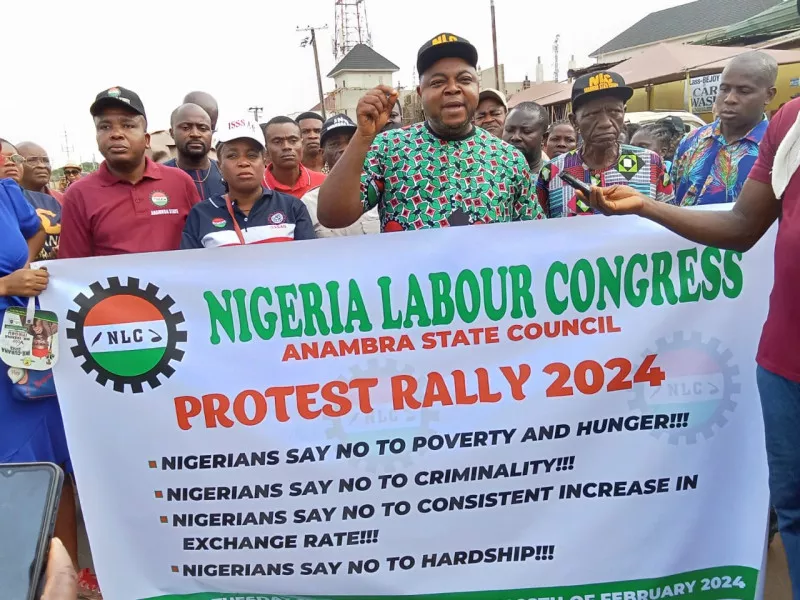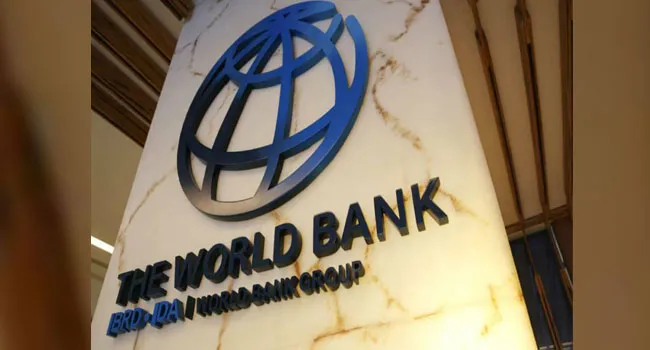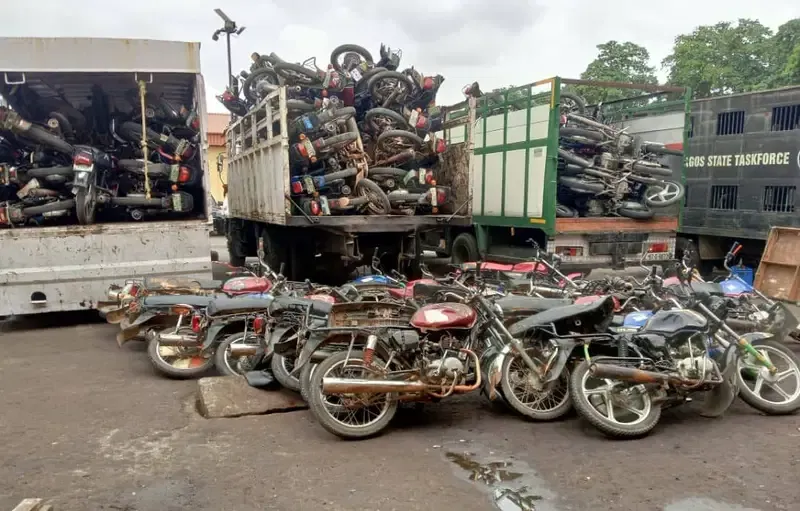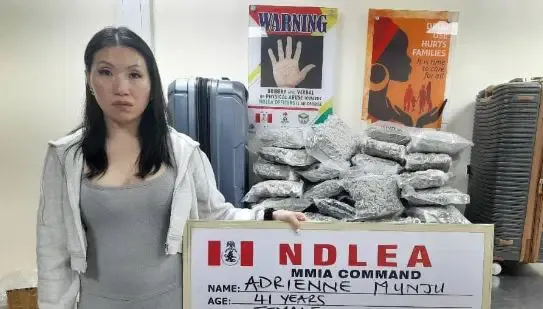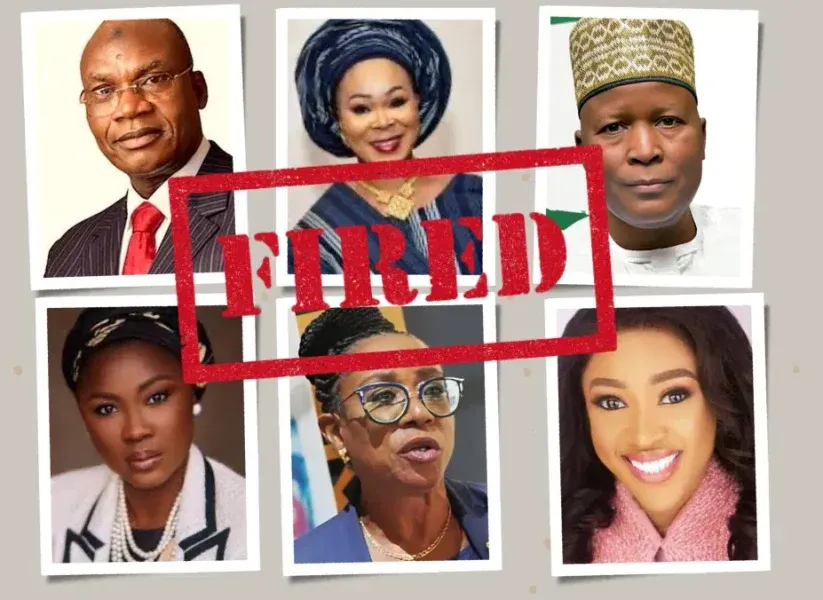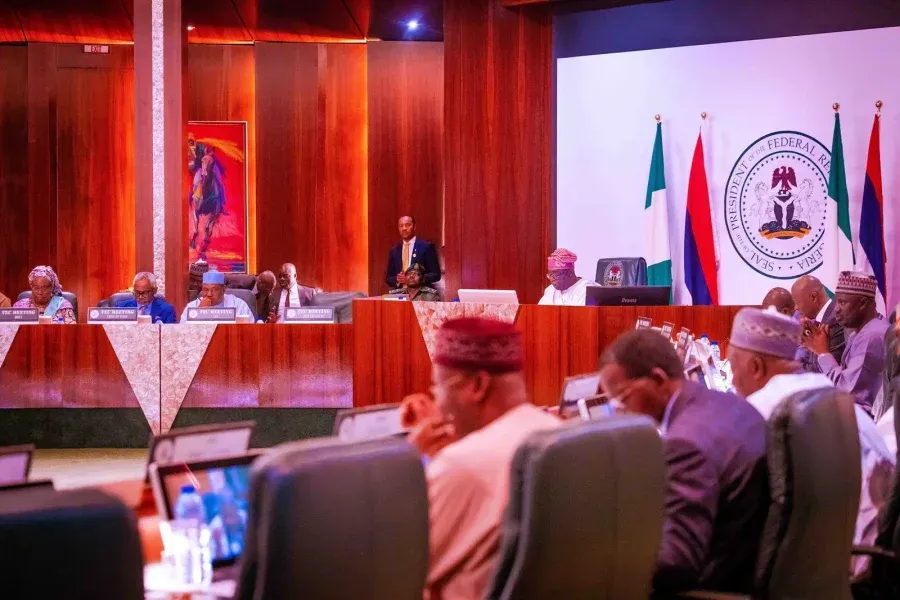The Nigeria Labour Congress (NLC) recently staged a nationwide protest to address the economic hardships faced by citizens, presenting a 17-point demand to President Bola Tinubu. Led by NLC President Joe Ajaero, the protest aimed to highlight the escalating poverty, hunger, and suffering caused by government policies.
Suspension of Protest: The protest was initially scheduled to last two days but was suspended after the first day due to its overwhelming success. In a communiqué following the protest, NLC leaders stated that the suspension was to review the effectiveness of the protest and plan further actions to engage with the government.
Key Demands to President Tinubu: The NLC presented a comprehensive set of demands to President Tinubu, emphasizing the urgent need for immediate action to alleviate the suffering of Nigerians. These demands include:
- Reopening of land borders to facilitate the importation of essential goods such as food and cement.
- Emergency measures to ensure food security, including securing farmlands for farmers.
- Suspension of levies, fees, and tolls imposed on petty traders by local and state governments.
- Immediate implementation of agreements reached with the government.
- Deployment of CNG/electric buses across all states to address transportation challenges.
- Distribution of CNG conversion kits to facilitate the transition of vehicles from petrol to CNG.
- Establishment of monitoring teams to oversee the disbursement of government intervention funds.
- Reversal and suspension of further increases in school fees.
- Reduction or removal of import duties on essential drugs and medical consumables.
- Prompt payment of owed wages, allowances, and pensions by state governments.
- Initiation of cash transfers to vulnerable groups.
- Implementation of a tax holiday for workers earning below a certain threshold.
- Removal of VAT on basic consumer items.
- Promotion of Made in Nigeria goods and services to stimulate local production.
- Reduction in the cost of governance at all levels of government.
- Halt to the implementation of IMF and World Bank policies in Nigeria.
- Conclusion of National Minimum Wage negotiations to ensure a living wage for workers.
Presidential Response: While the NLC’s protest garnered attention and support from various quarters, the Presidency labeled it as unnecessary. Special Adviser Ajuri Ngelale acknowledged the right of Nigerians to express their concerns but questioned the unanimity and political motivations behind the protest.
Nationwide Protests: The protest saw widespread participation across states, with workers and civil society groups rallying to demand government action. From Lagos to Abuja, protesters voiced their grievances, calling for an end to economic hardship and government policies exacerbating the situation.
Governor Participation: Several state governors, including Seyi Makinde of Oyo State, joined the protests in solidarity with the workers. Governor Makinde emphasized the need for collective efforts to tackle challenges and urged against divisive actions.
Government Response: The response from state governments varied, with some acknowledging the grievances of the protesters and promising action, while others downplayed the significance of the protests or attempted to obstruct them.
Overall, the nationwide protest organized by the NLC highlighted the widespread discontent among Nigerians regarding the economic challenges facing the country. It underscored the urgency for government intervention to address the pressing needs of citizens and alleviate their suffering.
